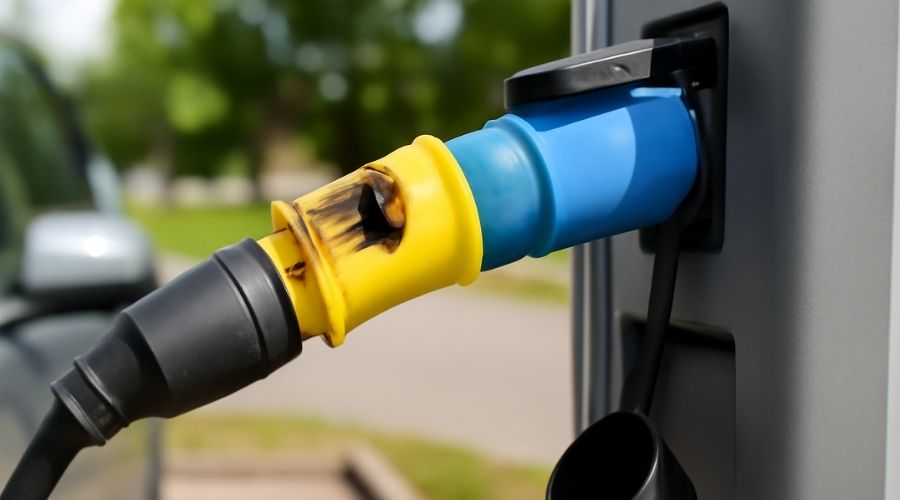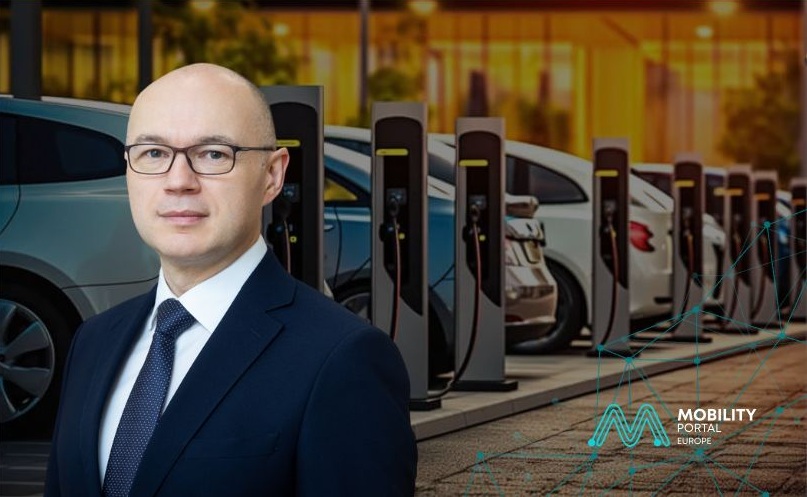Charging infrastructure in Costa Rica is expanding, but it faces a challenge that could jeopardise both system safety and user experience: the proliferation of low-quality chargers, mostly imported from China, entering the country without certified technical standards and sold at prices far below market average.
Currently, semi-fast chargers can be found for as little as 20 dollars, sold in non-specialist shops, hardware stores, and retail outlets.
What might appear to be an opportunity in Costa Rica for accessibility is, according to industry leaders, a serious issue, as these devices are causing major failures in both public and private stations due to the use of adapters that do not meet minimum safety specifications.
“Products that fail to meet standards are being distributed, damaging semi-fast charging infrastructure belonging to companies like ours, and even the fast-charging infrastructure of electricity distributors,” warns María José Ventura, Commercial Manager at ELCO.
The situation directly affects maintenance costs for companies: “The adapters melt, they get stuck to the connectors, and we’re the ones who have to cover the repair costs,” she adds in an interview with Mobility Portal Latinoamérica.
Lack of Technical Regulation: A Gap That Exposes the Market
There is currently no mandatory technical regulation in Costa Rica requiring minimum certifications for the import and sale of electric vehicle chargers.
This means that any product, regardless of its origin or performance, can enter the market and be resold without oversight.
“The problem isn’t that they come from China, but that they don’t comply with any kind of standard. China produces excellent products, but what’s entering here is not,” Ventura emphasises.
Unlike electric vehicles—which are regulated by the Ministry of Public Works and Transport (MOPT)—the charging ecosystem still operates in a grey area.
The result: users do not demand quality, and no authority is overseeing the entry of defective equipment.
Local Manufacturing vs. Low Cost: The Silent Battle
Local companies such as ELCO are striving to differentiate themselves through technical support and durability. According to their data, over 95% of automotive dealerships provide an ELCO portable charger with each electric vehicle sold in Costa Rica.
Additionally, the company has directly installed more than 2,500 charging stations across the country. They claim their strategy “is not to compete on price, but on added value: an 8-year warranty, local technical support, and an anti-arc system” that prevents damage caused by improper adapter use.
They are also developing the ATILA platform, a management and monitoring system already used by electricity distributors for their public fast-charging networks.
In terms of public infrastructure, the country currently has 65 DC fast-charging stations, operated by ICE, CNFL, ESPH, JASEC, Coopeguanacaste and others.
These networks are continually expanding but still face regulatory challenges and competition from low-quality imported chargers.
ICE and CREV are supporting the infrastructure’s expansion through their mobile applications.
Through ES ELÉCTRICO, ICE enables users to self-manage charging on its 21 kW DC charger network, while CREV LINK provides a similar service for its own network of chargers with the same power rating.
Both applications are key tools in expanding charging infrastructure, although challenges remain regarding equipment quality and standardisation.
Where Is the State?
“The government must establish technical regulations setting the standards these devices must meet,” states María José Ventura, Commercial Manager at ELCO.
The private sector in Costa Rica is calling for customs entry filters, mandatory minimum certifications, and user awareness campaigns. Only then can the degradation of the national infrastructure be prevented before it is fully consolidated.
Meanwhile, companies like CNFL and ICE, along with manufacturers such as ELCO, continue investing in infrastructure, developing domestic products and offering support.
But without a clear policy, the growth of electric mobility in Costa Rica could be undermined by its weakest link: charger quality.
DISCOVER MOBILITY PORTAL DATA
Discover Mobility Portal Data, a new exclusive market intelligence platform offering reliable data and key reports to support smart decision-making across the automotive sector — covering both combustion and electric vehicles, as well as charging infrastructure.
Research, trend analysis, and neatly organised statistics presented with clarity and precision, alongside up-to-date insights — all just one click away.
With Mobility Portal Data, good decisions are on the horizon.
READ MORE
-
“A Small Subsidy Makes a Big Difference”: Lithuania Allocates €6m to Boost Electromobility
The latest call of the Lithuanian Ministry of Transport and Communications seeks to implement 500 new charging points. The subsidies cover between 25% and 40% of the installation costs. How will the projects be selected?
-
EU invests €852 million in six innovative electric vehicle battery projects
The projects support innovation in the production of EV battery cells and the deployment of innovative and sustainable manufacturing techniques, processes, and technologies. Which projects were selected?
-
Battle Between Quality and Low Cost Threatens Charging Infrastructure in Costa Rica
The lack of regulation in Costa Rica allows uncertified electric chargers to enter the market, causing damage to the infrastructure and hindering the sector’s growth. Who is responsible for the faulty adapters that are already affecting even public networks?









